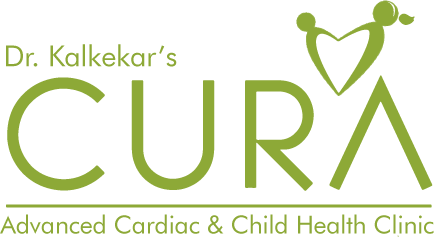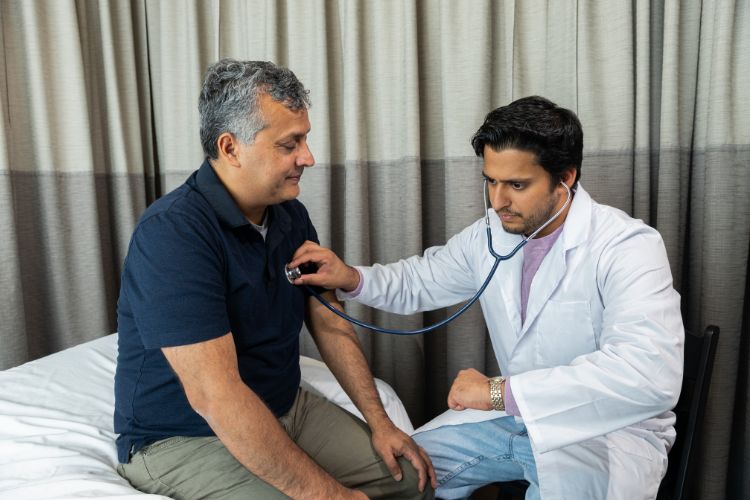Warning Signs That You Need to Visit Your Cardiologist
Sometimes, our hearts give us little clues that all isn’t quite right, but with busy lives and stress everywhere, it’s easy to brush off minor symptoms. However, paying attention to the warning signs could be a lifesaver! Heart disease doesn’t always announce itself loudly; instead, it often whispers subtle hints. Let’s look at some key signs that might mean it’s time to check in with a cardiologist.
1. Persistent Chest Discomfort
It’s a common myth that chest pain only signals a heart attack. In reality, mild, nagging chest discomfort can also point to other heart issues that need attention. If you’re feeling pressure, squeezing, or fullness in your chest that lingers or appears during physical activity, it’s worth getting checked. While it might be as minor as acidity, why take the chance?
2. Shortness of Breath During Everyday Activities
Ever found yourself gasping for air after walking up a flight of stairs or carrying groceries? Shortness of breath, especially if it’s new for you, might signal something beyond being out of shape. Heart conditions, especially those affecting blood flow, can limit the oxygen supply to your lungs, making breathing harder. If this symptom is familiar, let your cardiologist take a look before it gets worse.
3. Dizzy Spells or Lightheadedness
Feeling dizzy or faint when standing up quickly or after minimal exertion might be more than just low blood sugar. Frequent dizziness could mean your heart isn’t pumping blood efficiently. Dr. K. Bhandari, a cardiologist, notes that “lightheadedness can sometimes be the first clue to major cardiovascular conditions.” Frequent dizzy spells shouldn’t be taken lightly – it’s best to book an appointment and get clarity on the cause.
4. Irregular Heartbeat (Palpitations)
An occasional skipped beat after a coffee overload or during a stressful day is normal. But if you’re frequently experiencing racing, pounding, or fluttering in your chest, it’s worth getting checked out. Palpitations can sometimes indicate arrhythmias, which are irregular heart rhythms. Regular checkups and early intervention can make a big difference in managing these conditions effectively.
5. Family History of Heart Disease
Let’s say your dad had a heart condition, your uncle too, and now you’re wondering if that’s your fate. Family history is one of the strongest indicators of heart disease, and those with relatives who had heart issues might be at a higher risk themselves. You don’t have to wait for symptoms to start – a cardiologist can help you take preventive steps and monitor your heart health more closely.
6. High Blood Pressure, High Cholesterol, or Diabetes
The trio of high blood pressure, high cholesterol, and diabetes are often linked to heart disease. If you’ve got any one of these conditions, consider them as little alarm bells. Keeping them under control through medication, lifestyle changes, and regular check-ups with a cardiologist can significantly reduce your heart disease risk.
7. Unexplained Fatigue
Everyone feels tired, especially on a busy Monday morning. But if you’re constantly exhausted, even with adequate sleep, it might be more than just the Monday blues. Fatigue is a common yet often overlooked symptom of heart disease, especially in women. If normal tasks feel overwhelming and you can’t pinpoint why, a heart check might reveal what’s really going on.
8. Swollen Legs, Ankles, or Feet
Swelling in your legs, ankles, or feet can happen for various reasons, from a long day on your feet to the humidity outside. However, chronic swelling could indicate that your heart isn’t pumping blood as efficiently as it should, leading to fluid buildup. If you notice swelling that doesn’t go away, let your cardiologist give it a look.
Taking Charge of Your Heart Health
If you’ve nodded along to any of the signs above, it might be a good time to visit a cardiologist. Remember, not all heart issues come with dramatic symptoms, and early detection is your best friend.
Your heart is the engine that keeps you going; listen to what it’s trying to tell you. Stay informed, stay proactive, and give your heart the care it deserves.
Whether you are looking for heart treatment in Seawoods, book a quick consultation at Dr. Kalkekar Clinic and take action to prevent bigger issues.




